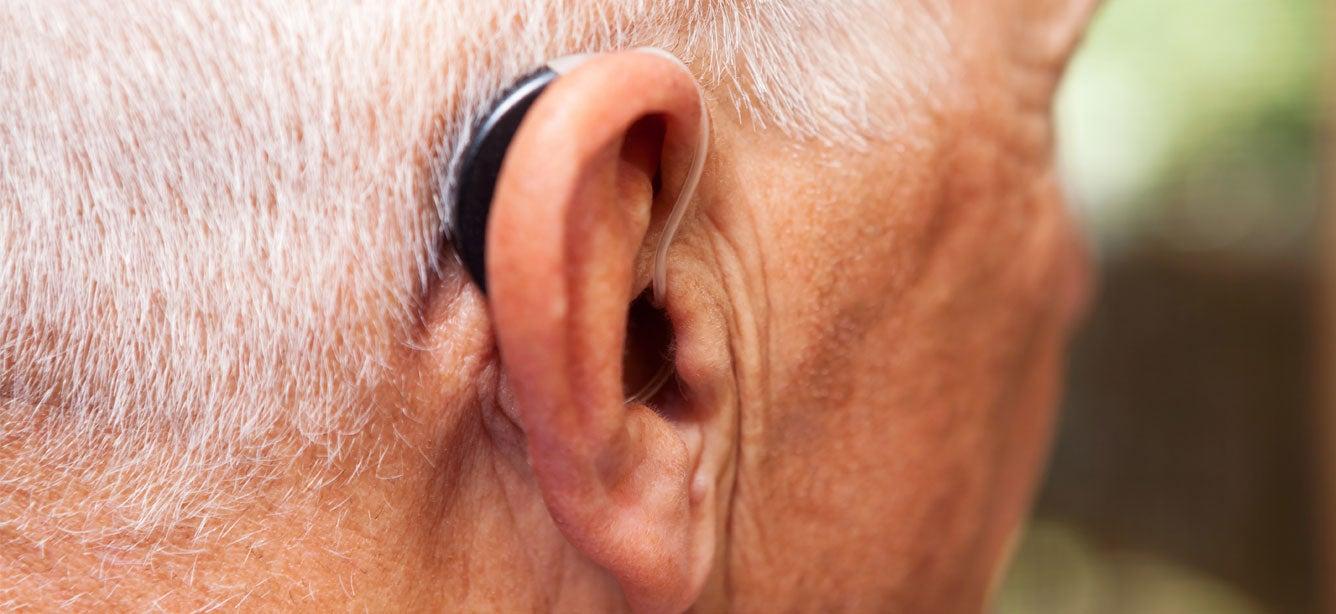
Related Topics
The loss of your hearing can make everyday life a challenge—from how you participate in conversations with friends and family to your ability to enjoy movies and concerts. This can be frustrating and embarrassing. It can even impact your mental health.
If you have difficulty hearing, you're far from alone: One in three older adults in the U.S. age 65-74, and over half of those age 75+, have hearing loss.1
Yet while Medicare pays for a wide range of services, including many preventive benefits, it does not pay for hearing aids and routine hearing tests.
Does Medicare cover hearing aids and tests?
Original Medicare (Parts A & B) does not cover hearing exams or hearing aids and fittings. Medicare Part B does cover diagnostic hearing and balance exams if a provider orders these tests to see if a person requires medical treatment for a condition other than hearing loss. For example, such tests may be used to diagnose the cause of dizziness or vertigo.
How much will I have to pay out of pocket for hearing aids?
Since original Medicare doesn’t pay for prescription hearing aids ordered by a professional, you’d pay the full cost—often $1,000–$4,000 per pair.
But if you have mild to moderate hearing loss (not severe hearing loss), you can buy hearing aids over the counter (OTC) without the need for a medical exam, prescription, or professional fitting. OTC hearing aids can cost up to several thousand dollars less than prescription hearing aids. Check out NCOA's complete guide to OTC hearing aids.
Can I get hearing aid and hearing exam coverage through Medicare Advantage?
Yes. Most Medicare Advantage (Part C) plans offer hearing benefits that can be used to cover hearing exams, hearing aids, and more—but the type and amount of coverage can vary quite a bit by plan. If you have Medicare Advantage, check with your plan to see what it covers.
Does Medicaid cover hearing services if I have both Medicare and Medicaid?
Yes, if you have both Medicare and Medicaid (this is called being “dual eligible”), Medicaid may cover hearing services that Medicare does not. Coverage varies by state, but Medicaid often helps pay for hearing exams, hearing aids, and related services. To find out exactly what’s covered, check with your state Medicaid office or your health plan provider.
Does private health insurance cover hearing aids?
You may be surprised to learn that as common as hearing loss is, insurance coverage for hearing aids is limited. This is because many insurers do not consider them to be “essential medical devices.”
Here’s what you can expect:
- Private health insurance plans: Most private plans don’t cover hearing aids. When they do, it’s usually a modest allowance (e.g., $2,500 every five years for hearing aids and related items), access to discount programs like TruHearing, or coverage tied to specific hearing aid vendors. You may be required to get a prescription or referral to receive these benefits.
- Employer or union retiree plans: Some employer-sponsored health plans offer partial coverage for hearing aids, but benefits vary widely. Check your plan documents or contact your HR department for details.
- Supplemental hearing aid insurance: Specialty supplemental policies (e.g., Ear Insurance or UnitedHealthcare Hearing) are available to cover hearing aids, but coverage under these plans is limited. They may, for example, cover routine hearing exams or offer credits toward devices. The best hearing aid models may require high co-pays.
Where can I get help paying for hearing aids and tests?
If you need financial assistance for hearing aids and hearing exams, the resources below may be able to help:
- Sertoma, a civic service organization that helps connect people with hearing assistance, has a comprehensive listing of national and state charitable programs, organized by state.
- Help America Hear is an assistance program from the Foundation for Sight and Sound. It provides new hearing aids for people with low income.
- The Hearing Industries Association maintains a Guide to Financial Assistance for Hearing Aids. The association also recommends negotiating on the price of hearing aids.
- The Hearing Loss Association of America offers guidance on its Financial Assistance webpage.
- Some local Lions’ Clubs run projects that distribute affordable hearing aids to those in need. Contact your local chapter to see if it offers this program.
Frequently Asked Questions (FAQ)
Does Medicare cover OTC hearing aids?
Traditional Medicare does not cover hearings aids, either prescription or over-the-counter. Some private Medicare Advantage plans offer some hearing aid coverage, including for OTC hearing aids. Check with your specific plan.
Does Medicare Advantage cover hearing aids?
It depends. Medicare Advantage coverage varies by plan. Check with your insurance provider to find out if hearing aids are covered.
Does Medicare cover cochlear implants?
Yes, Medicare covers cochlear implants, but it depends on the severity of hearing loss and if hearing aids have not been helpful.2 Talk to your insurance provider to fully understand your coverage.
Sources
1. National Institute on Deafness and Other Communication Disorders. Hearing Loss & Older Adults. Found on the internet at https://www.nidcd.nih.gov/health/hearing-loss-older-adults
2. Centers for Medicare and Medicaid Services. Cochlear Implantation. Found on the internet at https://www.cms.gov/medicare-coverage-database/view/ncd.aspx?ncdid=245


